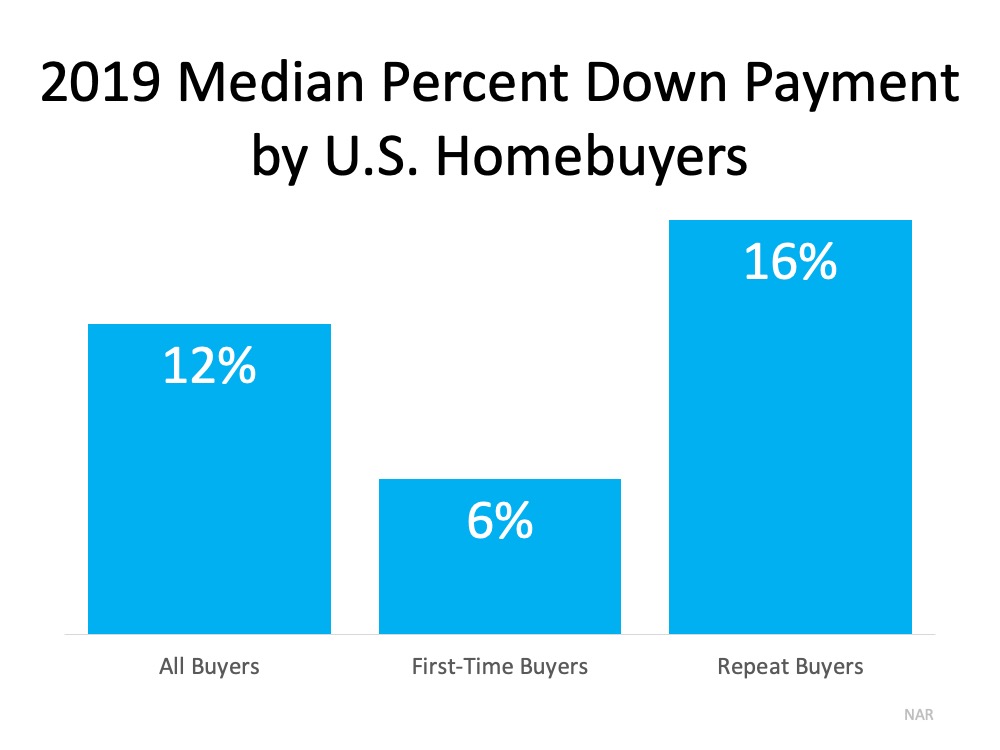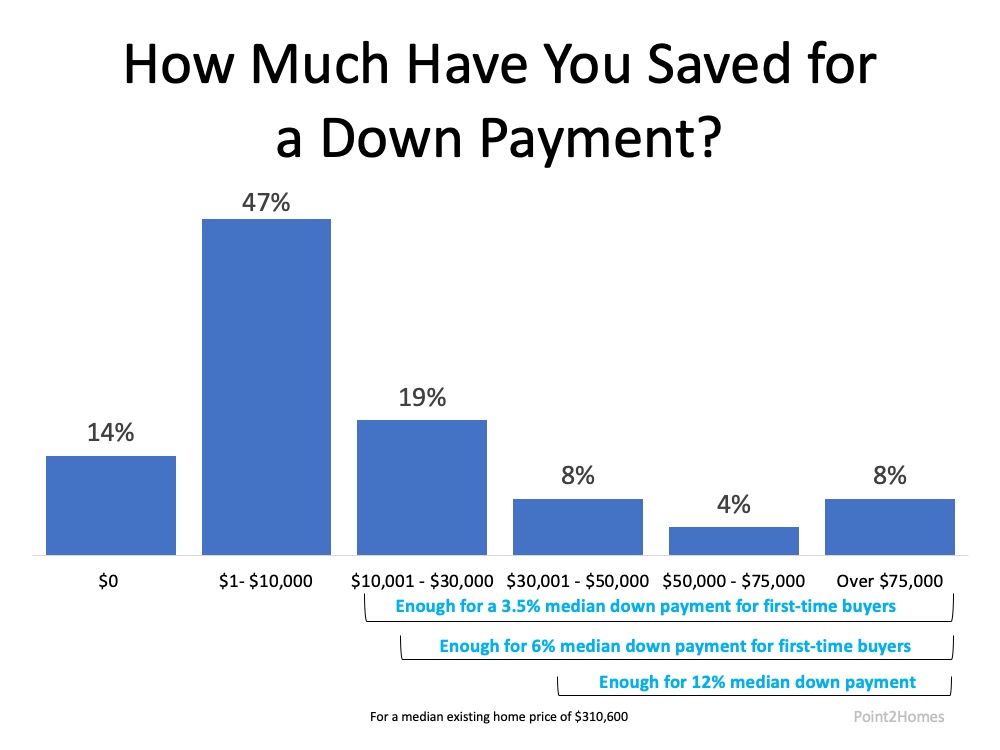
“Contrary to popular belief, you don’t always have to put 20% down to buy a house.”
One of the biggest misconceptions for first-time homebuyers is how much you’ll need to save for a down payment. Contrary to popular belief, you don’t always have to put 20% down to buy a house. Here’s how it breaks down.
A recent survey by Point2Homes mentions that 74% of millennials (ages 25-40) say they’re interested in purchasing a home over the next 12 months. The study notes, “88% say they have significantly less savings than the average national down payment amount, which is $62,600.”
Thankfully, $62,600 is not the amount every buyer needs for a down payment in the United States. There are many different options available, especially for first-time homebuyers (millennial or not). That amount can also be significantly less, depending on the purchase price of the house.
According to the National Association of Realtors (NAR), “The median existing-home price for all housing types in August was $310,600.” (These are the latest numbers available). NAR also indicates that:
“In 2019, the median down payment was 12 percent for all buyers, six percent for first-time buyers, and 16 percent for repeat buyers.” (See graph below):
 That means if a qualified first-time buyer purchases a home at today’s median price, $310,600, with a 6% down payment, in reality, the down payment only amounts to $18,636. That’s nowhere near $62,600.
That means if a qualified first-time buyer purchases a home at today’s median price, $310,600, with a 6% down payment, in reality, the down payment only amounts to $18,636. That’s nowhere near $62,600.
Knowing there are also programs like FHA where the down payment can be as low as 3.5% of the purchase price for a first-time buyer, that up-front cost could be significantly less – as little as $10,871 for the same home noted above. There are also other programs like USDA and loans for Veterans that waive down payment requirements.
The Point2Homes study also shares how much millennials have indicated they’ve saved for a down payment. As we can see in the graph below, 39% have already saved enough for a down payment on a median-priced home. Another 47% are close to reaching that goal, depending on the purchase price of the home. Unfortunately, the lack of knowledge about the homebuying process is keeping many motivated first-time buyers on the sidelines. That’s why it’s important to contact a local real estate professional to understand the requirements in your local area if you want to buy a home. A trusted agent and your lender can guide you through the process.
Unfortunately, the lack of knowledge about the homebuying process is keeping many motivated first-time buyers on the sidelines. That’s why it’s important to contact a local real estate professional to understand the requirements in your local area if you want to buy a home. A trusted agent and your lender can guide you through the process.
Bottom Line
Be careful not to let big myths about homebuying keep you and your family out of the housing market. Let’s connect to discuss your options today.
To view original article, visit Keeping Current Matters.
What You Need To Know About Saving for a Home in 2024
It’s important to work with a real estate professional to understand what’s best for your situation in your local area.
Retiring Soon? Why Moving Might Be the Perfect Next Step
Whether you’re looking to downsize or simply be closer to loved ones, your home equity can be a key to realizing your homeownership goals.
Sell Smarter: Why Working with a Real Estate Agent May Beat Going Solo
A real estate agent can help you price your home correctly and guide you through the paperwork.
Expert Quotes on the 2024 Housing Market Forecast
If you’re thinking about making a move next year, know that early signs show we’re turning a corner.
Why Now Is Still a Great Time To Sell Your House
Nationally, demand is still high compared to the last normal years in the housing market and plenty of buyers are making moves right now
If Your House Hasn’t Sold Yet, It May Be Overpriced
With today’s higher mortgage rates already putting a stretch on their budget, buyers are being a bit more sensitive about price.





